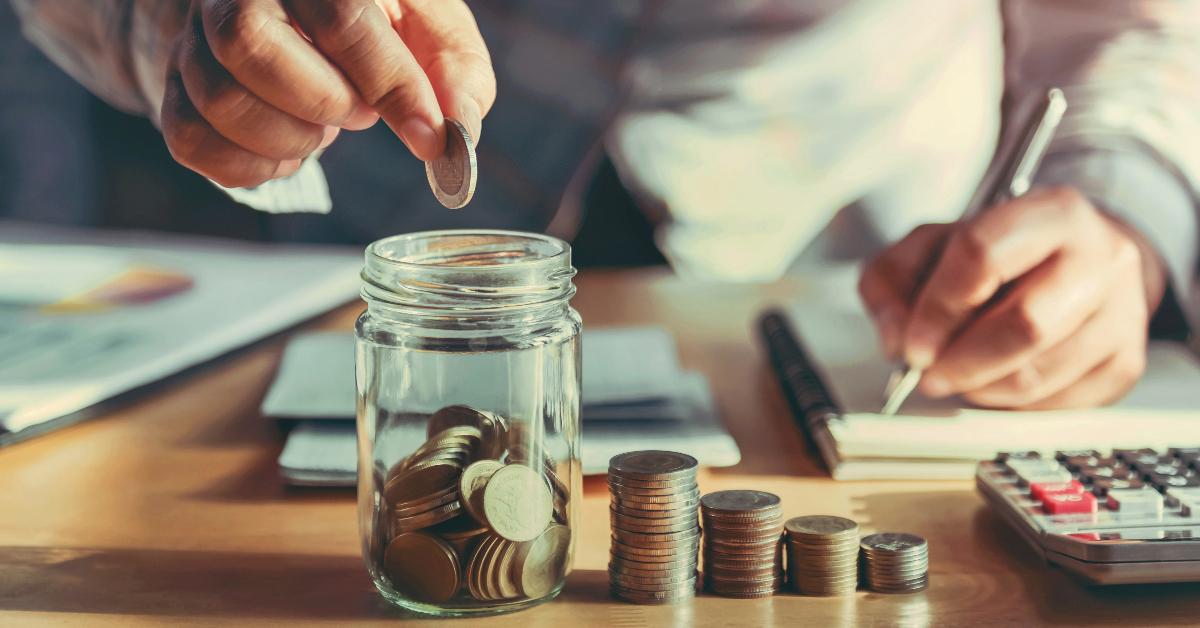The US consumer sentiment index, compiled by the University of Michigan, fell to 69.5 in August from 71.6 in July. A weakening consumer sentiment index is seen as indicating a potential downturn in consumer spending and the economy in general.
Most economic commentators agree that individual consumption rather than saving is the key to economic prosperity. Saving, they believe, hinders economic growth because it coincides with weakening demand for goods. In this theory, economic activity is depicted as a circular flow of money in which one individual’s spending is part of the earnings of another.
If, however, individuals become less confident about the future, they are likely to cut back on their outlays and hoard more money, thereby diminishing the earnings of some other individual, who in turn also spends less. A vicious circle emerges: the decline in confidence leads to less spending and more hoarding, further weakening the economy and eroding confidence in it.
To arrest the downward spiral, according to this theory, the central bank must increase the supply of money. By putting more money in people’s hands, confidence and spending will increase, and the circular flow of money will pick up again.
All this sounds very convincing, and, indeed, business surveys show that a lack of individual demand is the major factor behind poor performance during recessions. But can demand by itself generate economic growth? What about the supply of goods? Are goods always around, just waiting for demand? Is it even possible for demand itself to be scarce?
Scarcity of Means Thwarts Demand
In the real world, it is necessary to produce useful goods that can be exchanged for other useful goods. Bakers who produce bread don’t produce everything for their own consumption but exchange most of it for the goods of other producers. Through the production of bread, bakers exercise demand for other goods. According to David Ricardo:
No man produces but with a view to consume or sell, and he never sells but with an intention to purchase some other commodity, which may be immediately useful to him, or which may contribute to future production. By producing, then, he necessarily becomes either the consumer of his own goods, or the purchaser and consumer of the goods of some other person.
Tools and machinery (i.e., capital goods) raise worker productivity: they must be made, and they increase growth in the production of consumer goods.
Consumer goods must be allocated to those who produce capital goods to sustain their life and well-being during production. This allocation of consumer goods is made possible by saving—that is, a decision by some individuals to transfer a portion of their consumer goods, in return for a greater quantity in the future, to those who are producing capital goods. Saving, as what enables the production of capital goods and thereby raises individual living standards, is the heart of economic growth.
Money and Saving—What Is the Relationship?
Money does not alter the essence of saving but does make it easier for producers to exchange their products with one another. It does not produce goods but only facilitates their exchange. According to Rothbard, “Money, per se, cannot be consumed and cannot be used directly as a producers’ good in the productive process. Money per se is therefore unproductive; it is dead stock and produces nothing.”
In a money economy, payments for goods are still made with other goods—money only facilitates the payment. Thus, a baker exchanges saved bread for money and then exchanges the money for other goods, effectively paying with the saved bread. When a baker exchanges with a shoemaker saved bread for money, the shoemaker receives sustenance to continue making shoes.
Saving makes economic activity possible by means of money. We do not save money itself but employ it to channel the unconsumed consumer goods we have saved toward individuals engaged in production. An individual who hoards money is not saving money per se but rather exercising a demand for it, which is never the bad news that popular thinking believes it to be. Saving does not weaken but rather strengthens economic growth.
Money out of Thin Air and Economic Growth
When money is generated out of thin air it sets in motion an exchange of nothing for money, followed by money for something—that is, an exchange of nothing for something. This leads to consumption not supported by production, a diversion of saved consumer goods—the products of wealth-generating activities—toward those who hold money made from nothing. Diminishing the flow of saved consumer goods toward producers of wealth weakens the production of goods and in turn the demand for goods, setting in motion an economic recession.
What weakens the demand for goods is not the capricious behavior of consumers but an increase in the money supply out of thin air. As long as the pool of consumer goods is expanding, the central bank and government officials can give the impression that loose monetary and fiscal policies are driving the economy. This illusion, however, is shattered once the pool becomes stagnant or declines. Without expanding the production of consumer goods, all other things being equal, economic growth is not possible.
Conclusion
Most people aspire to a good and comfortable life. Standing in the way of this goal are the means that must be produced to achieve it. Saving permits the expansion of these means. The increase in saving, which supports the increase in the production of goods, also generates an increase in demand for goods. Any illusion that demand can somehow be strengthened through the monetary presses is sooner or later shattered by the impossibility of getting something for nothing.
























